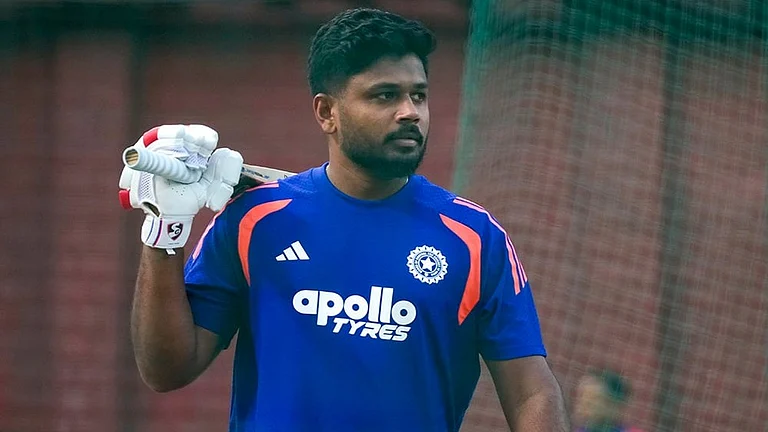Ritabhari Chakraborty, the Bengali superstar, has been a prolific name in the film industry for over a decade. Having faced depression from a very young age, she has gone ahead to become a huge advocate for mental health all her life. She has never shied away from talking about it, helping out people in need, and creating awareness among common people as much as possible. She has been working towards trying to eradicate this taboo against mental health.
Talking to Prateek Sur, Ritabhari Chakraborty opens her heart out and reveals her own ordeal with mental health issues. She also gives out tips about what people, not just from showbiz, but in general, should do so as to have sane mental health. Excerpts from the chat:
Is there a taboo in society about mental health?
Mental health is an important issue and I really feel that we should break the taboo and openly start talking about it. If you’ve any disease like diabetes or low blood pressure, people empathise with you when you share that you’ve some sort of discomfort. People are so easy on you. But if you say that you’ve some mental disorder, people start judging you. People start thinking that everything is the same when you say that you’re facing any kind of mental health issues. They think you’re mentally unstable or insane, which is not true at all. The brain is the most functionally important organ in the body and it has its own set of issues and problems like the rest of our body. It also has to deal with similar issues while growing and evolving in life.
Have you ever faced any mental health issues?
I was diagnosed with recurring depression when I was in the 10th grade. I have had to take care of it and ensure that I never fall into a dip. Ever since then I had the option of taking medication and being on them or I had the option of making sure that I don’t have to depend on medication by following simple procedures to take care of my health. Like exercising, which helps in releasing endorphins and keeping your mental health good. Then, getting the right amount of sleep. Mindfulness, meditation and so many other things as well.
But can’t the condition get triggered again?
Then again in life, there are situations which act as triggers. Like last year, I had two surgeries. Or the time when I went through a very bad heartbreak. Then it gets triggered so bad that you cannot avoid a depressive phase. Instead of romanticising it and victimising yourself, it is always better to get help. Like I have had a psychiatrist for 15 years. He has been a lifesaver. Anyone with any other physical condition would say about their doctors, I would say the same about him, as he has taken care of me for the last 15 years through therapy, whenever needed.
What about medication?
Like in the last years those 3 months when I had to take anti-depressants for the only time in my life. But without that I cannot image myself coming back to my normal self so swiftly that I have. I needed that help then. Sometimes you need to have crutches before you learn to run on your own legs. Therapy and medication do exactly that, and there is no reason to shy away from it, and think that you’re the only one who is going through this and you need medication and there is something wrong with you. It’s completely wrong (to think like that). If you’ve a fever, if you’ve Covid, you’ll go to a doctor and take the consultation and medication and then go on with your life. The same goes for your mental health.
How important is the requirement of friends and family for someone suffering from mental health issues?
It is very important for people who go through mental health issues to have a strong support system of family and friends. They’ve to be understanding of it. If we have people around us while going through something bad, like OCD or bipolar disorder, it’s our duty to support and know how to be around them. For example, you don’t give a full plate of sweets to a person who’s diabetic. Same way when you’re around people with mental health issues, you have to be cautious about not bringing up things that can trigger certain emotions. People need to be understanding and supportive of that.
Being in showbiz how does one maintain good mental health?
When it comes to showbiz, people can be so critical and brutal on you. It’s really important to have a healthy relationship with yourself, and have a core support system. If your relationship is not good with yourself then you’ll suffer a lot because people will talk a lot of crap about you. On a good day, they’re going to take you on the top and on a bad day they’re going to throw you down – and that’s how the world works. You cannot change it overnight. You can always spread kindness and wish that people are kind to you too. But it’s not a perfect world, which is why it is important that you believe in yourself, you support yourself, and you believe in who you are. If you’re going to constant expect that from the world then it’s doing to be disappointing and your mental health will never be at peace, especially in this particular profession.
What steps can one take in order to stay mentally healthy?
I strongly believe that meditation, mindfulness, listening to podcasts or whatever your form of destressing and connecting to yourself is, do it, as it’s very important. Stay true to yourself. I still have hobbies like making miniatures. It has no commercial purpose to it and is not related to my profession, but it’s my own. No one can take it away from me or criticise me with their own reviews because it's not there. It's my own. So, there should be a healthy relationship with yourself.
What helped you?
I’ve taken different steps in my life before to take care of people with mental health issues. I have never shied away from sharing my doctor’s number. Telling them to like see a psychiatrist.
On parting shots, what would be your message for all who’re not able to come out and talk about their mental health issues?
If you’ve something going bad in your life which is sad, it’s not depression. But if you’ve any kind of mental health disease, you’ve to treat it like any other disease you have in your body.



























